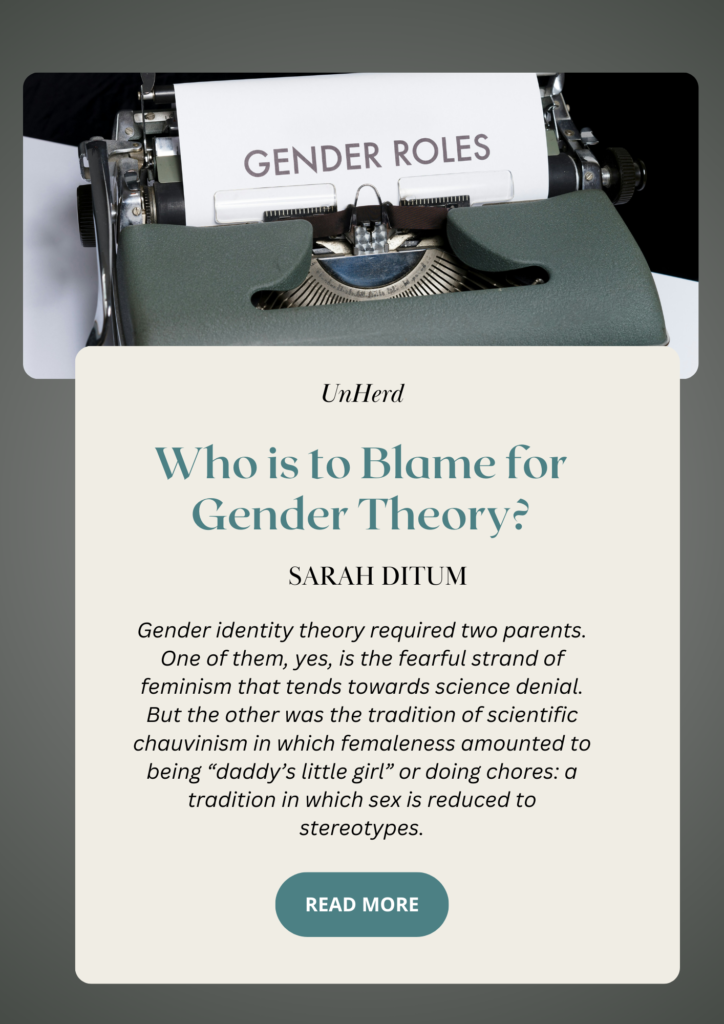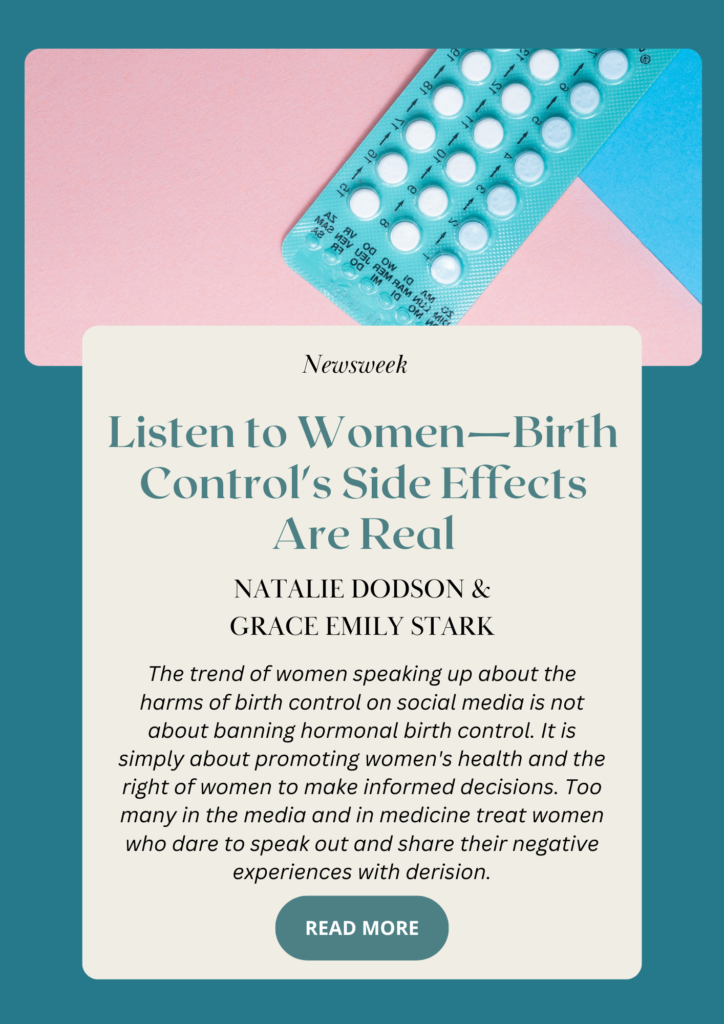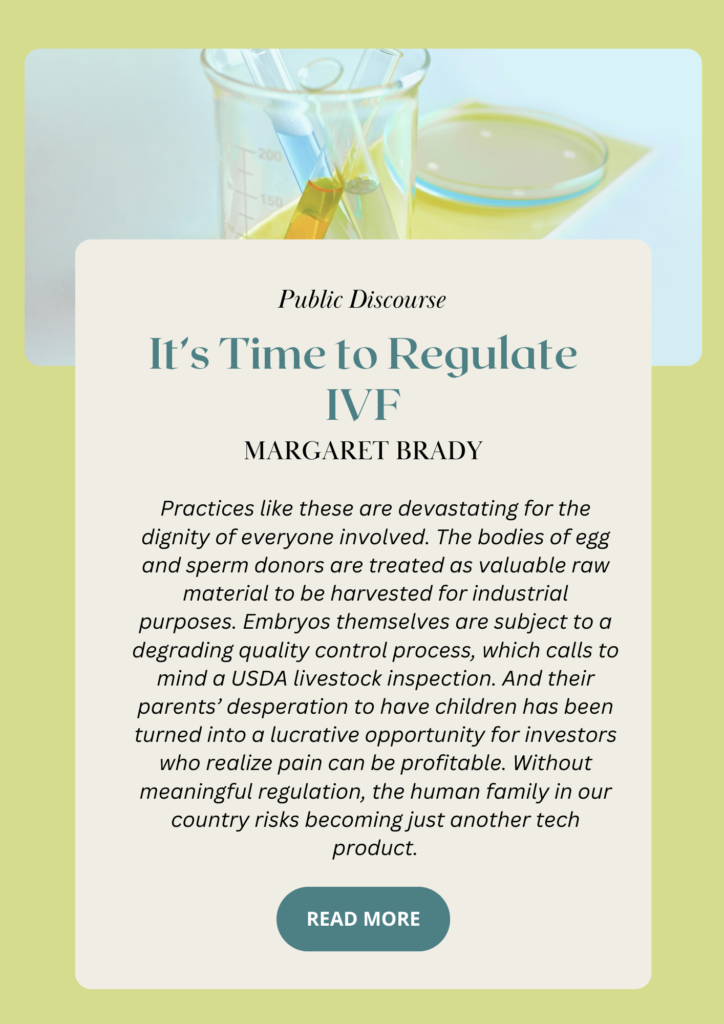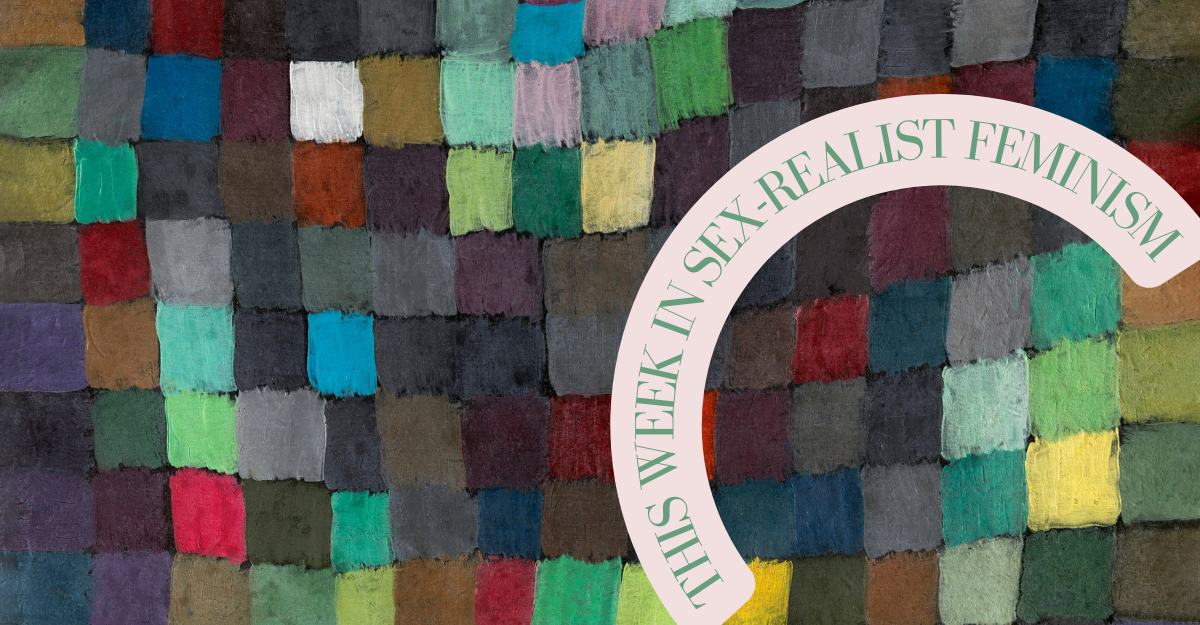Welcome to the weekly Fairer Disputations round-up: your one-stop shop for the best in sex-realist feminism. This week: Sarah Ditum on who to blame for gender theory, Natalie Dodson and Grace Emily Stark on birth control’s side effects, and Margaret Brady on regulating IVF. Plus: tradwives and feminists, backstreet botox, the Gen Z sex war, what managing editor Melody Grubaugh is reading—and more!
First, Sarah Ditum allots blame for the creation of “gender theory”—and holds that it doesn’t lie solely with the feminists.

Next, Natalie Dodson and Grace Emily Stark respond to the Washington Post piece suggesting that women speaking out about their issues with hormonal birth control are sources of “misinformation”.

At Public Discourse, Margaret Brady argues that the U.S. should join the vast majority of other first-world countries and begin to regulate the use of reproductive technologies.

More Great Reads:
- Why Feminists and Tradwives are Failing, Leila Mechoui, Compact (paywalled)
- Empowerment Mantras Drive Women to Black-Market Botox, Kristina Murkett, UnHerd
- Mother Scholar, Leilani Mueller, First Things
- The Pyrrhic Victory of “Gender Identity”, Kay Hymowitz, City Journal
- Medicine Shuns Gender Detransitioners Like Me — But We Deserve to be Heard and Helped, Chloe Cole, New York Post
- Inside the Gen Z Sex War, Poppy Sowerby, UnHerd
What I’m Reading: Melody Grubaugh

I’ve just finished Helen Rebanks’ memoir of her life in the English Lake District, The Farmer’s Wife. It’s a moving portrait of a woman who has found fulfillment in a role that is often overlooked or undervalued. With equal aplomb, she tackles the piles of dirty laundry from her four children, the bookkeeping for the family farm, and sheep who need tagging. There are many relatable moments, but there is also wisdom—from a strong emphasis on nourishing our bodies with good food produced by sustainable farming (the book includes 100 pages of recipes!), to a very Fairer Disputations-style recognition of the truly essential nature of caregiving:
Caring roles in our society are all too often invisible, ignored in the crazy “look at me’” world we live in. Individuals are celebrated instead of families and communities. But no one does anything entirely on their own. I know lots of brilliant people, but there is always a team of hidden, hardworking souls around them making it all possible. I know that the small domestic things matter; they always have—my mum taught me that. Learning that the word “mundane” as its roots in the Latin word “mundanus,” of the world, made me see everything through a different lens. To me, caring for my family is, and always has been, the most important work in the world.



